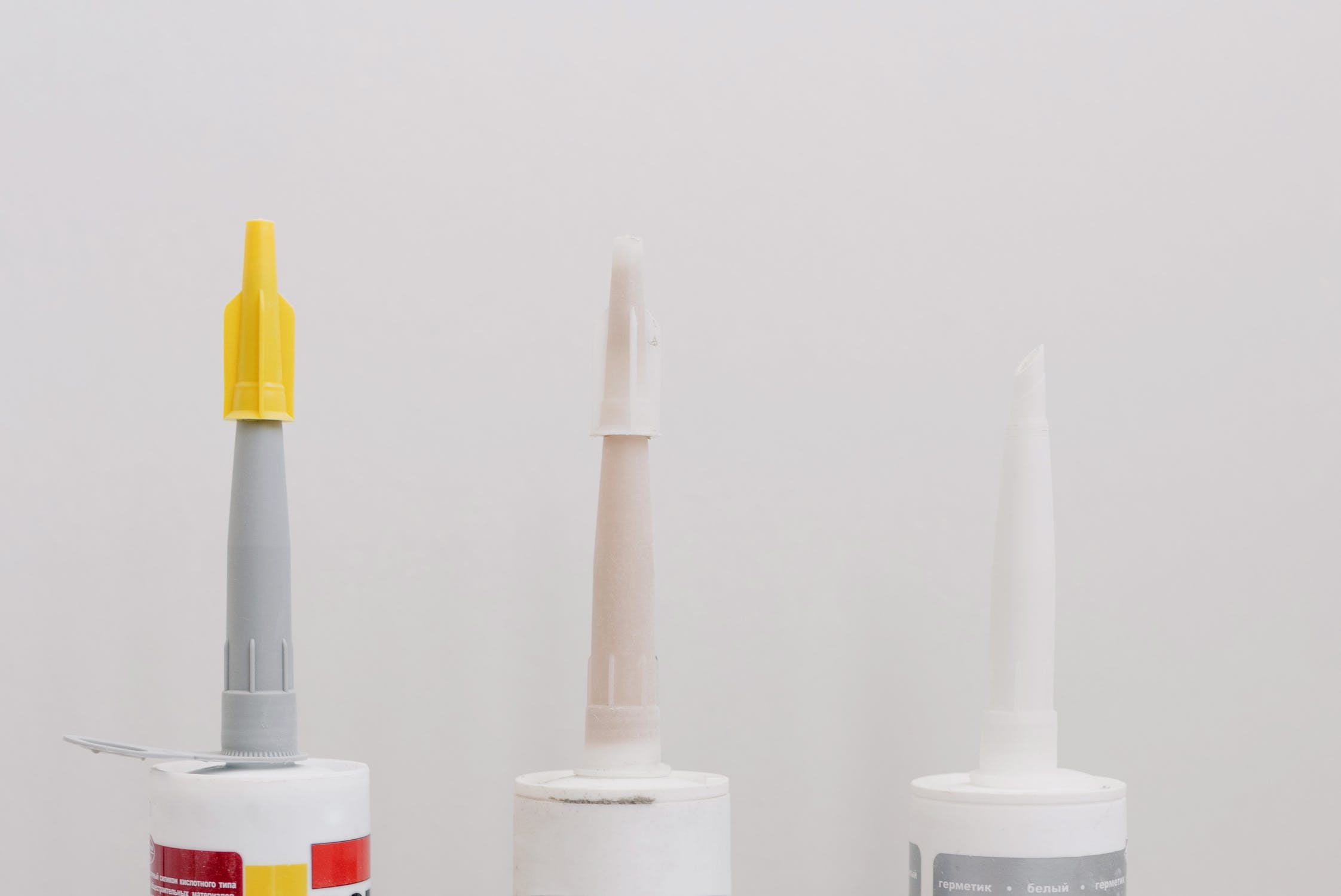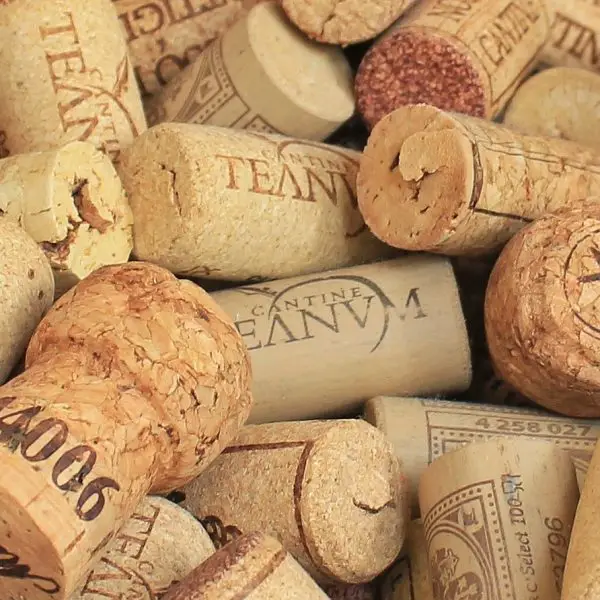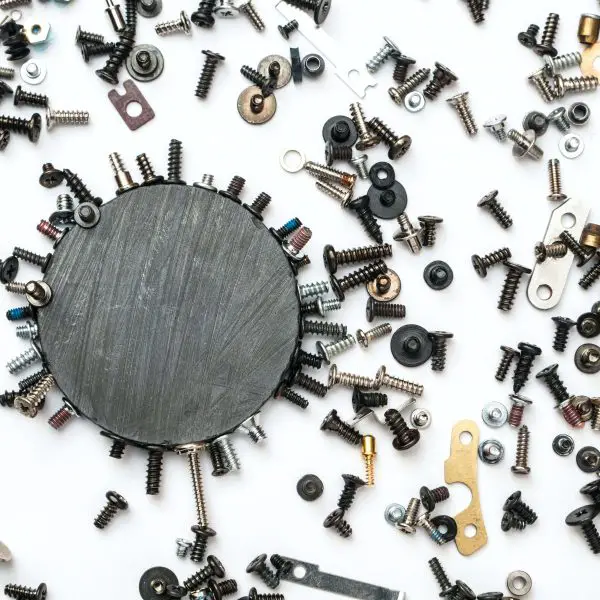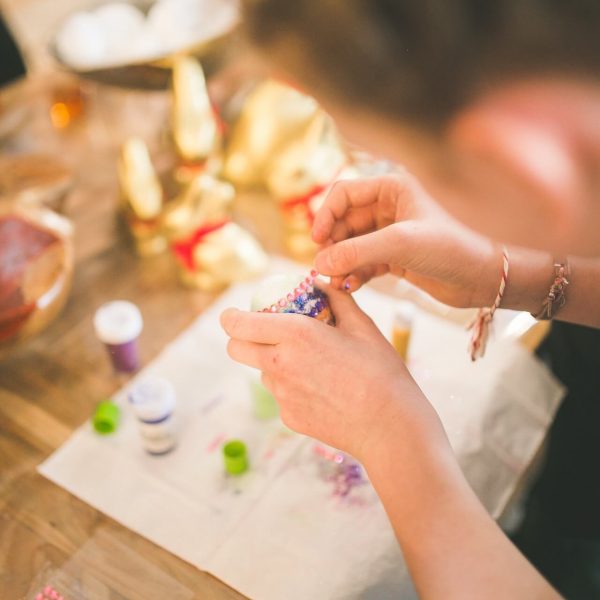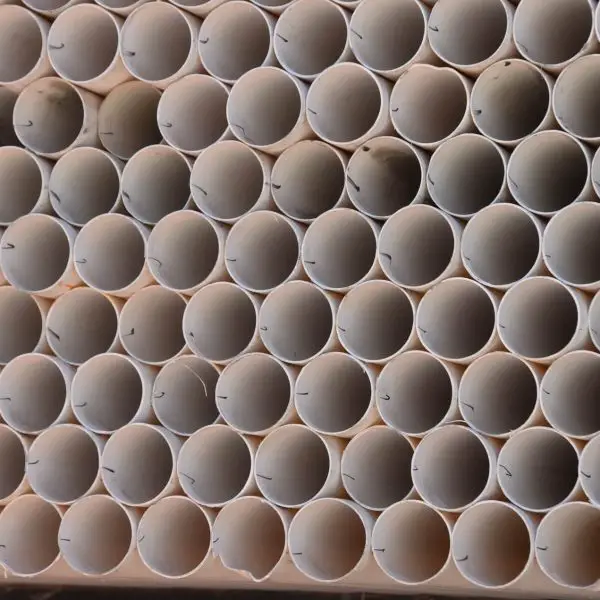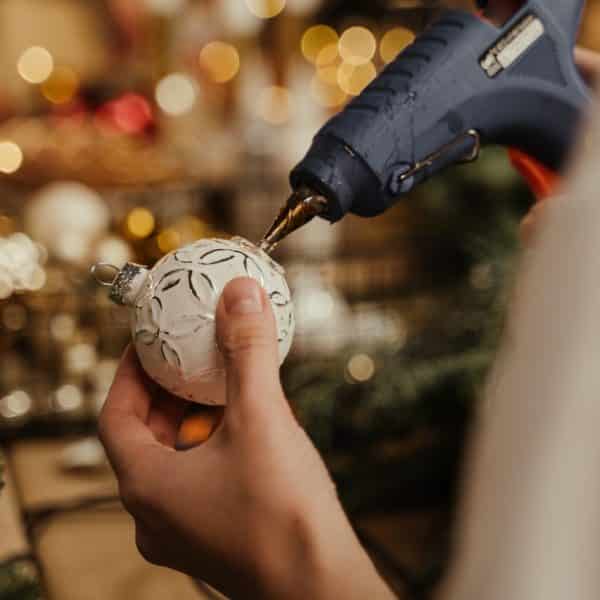Foam can refer to a lot of different types of plastic that are produced as foam. Since many plastics are difficult to bond, we have to choose our adhesive carefully, or we can be left with a weak bond or damaged foam.
Because of the wide variety of foams and adhesives that all claim to be the best glue for foam, most people end up indecisive about which glue to choose.
That’s why we compiled a list of the best glue for foam that contains 5 adhesives. Along with the list, we’ve included an informative guide that will help you better understand different types of foam and adhesives.
Last update on 2025-01-24 / Affiliate links / Images from Amazon Product Advertising API
Best Glue For Foam – Reviews
We started our research with more than 30 adhesives that were advertised as the best glue for foam. Only 5 glue models ended up on our list, and those 5 are indeed the best performing adhesives for foam you can find.
In the list, we included adhesives for different popular types of foam such as styrofoam, PVC, and EVA foam, as well as the general adhesives that work on all types of foam equally well so that you can choose the best glue for your use case.
Our Pick

3M Super 77 Multipurpose Spray Adhesive
Drying Color: Clear
Setting Time: 15 seconds
Viscosity: Low
The adhesive that we found to be the all-around best for different types of foam is this 3M 77 spray adhesive. It doesn’t damage the foam, bonds it excellently, and does so very quickly. It’s a great choice for the foam to foam and foam to other lightweight material bonding!
Bonding
As we already mentioned, this adhesive is multi-purpose and works with every kind of foam there is. Because of its low soak properties, you will bond the foam much better than with other liquid adhesives that tend to seep through the porous foam.
You will have no problem using it on PVC, Polyurethane, polystyrene, and other types of foam. It is the most versatile adhesive on our list!
More importantly, this spray adhesive won’t damage the foam, no matter the type. This is the most common problem people face when they pick the wrong adhesive for foam. It bonds the foam but ends up eating it, which defeats the purpose of bonding it.
With this glue, you can forget about those problems as it works phenomenally on every type of foam we tested it on. It didn’t dissolve it, and the bonds were stronger than the foam itself, meaning that the foam is more likely to break before the bond does!
In terms of strength, this glue is more than sufficient for every type of foam bonding. It’s not as good for heavy-duty projects that involve bonding foam to other materials such as metal or wood but does really well for gluing foam to plastic.
Drying Time

One of the best things about this adhesive is the convenience of the lightning-fast drying time. It can set in as low as 15 seconds!
This kind of setting time can speed up your project significantly and make you finish it in no time!
Ease Of Use
The reason a lot of people decide to go with this adhesive is its ease of use and convenience, no need for an applicator, or worrying about the consistency of the glue.
All you need to do is spray it on one part, do the same for the other, join them together, and that’s it! The glue won’t spill or run like with the traditional liquid adhesives.
The no-mess application and the convenience of using this adhesive can make your project much more enjoyable and make you finish it faster!
Drying Color
The drying color is crystal clear, which is what we want. No colored residue will be left when the adhesive dries, and it won’t alter the looks of the foam.
Toxicity

The problem this and many other adhesives have is the increased toxicity and strong fuming of the adhesive.
It is highly recommended to work in a well-ventilated area when using this adhesive, while we encourage you to use protective equipment as well.
This adhesive leaves sticky and hard-to-remove stains that can ruin your clothing or stay on your skin for days. That’s why we recommend working in old clothes that you can afford to stain.
This is not unusual as this is the case with most adhesives today, with the exception being PVA and hide glue.
Affordability
The main issue we have with this adhesive is its affordability. It is on the pricier side, and you will likely go through it faster than the other adhesives.
Still, we think that the price is worth it as the speed of drying, bonding of the foam, and the convenience of this adhesive are unmatched.
Verdict
This is the best glue for foam to foam and foam to lightweight materials when it comes to performance and the speed of the results. No other adhesive will bond the foam this fast and this good at the same time!

Dap Original Contact Cement
Drying Color: Clear
Setting Time: 30-45 Minutes
Viscosity: Medium
The runner-up and our second favorite adhesive on our list is the Dap Contact Cement. It bonds foam wonderfully and is especially great for EVA foam, which is used a lot for cosplay costume design. Its strength and price to performance ratio are phenomenal!
Bonding
This cement is compatible with almost every type of foam there is but works the best on ethylene-vinyl acetate, more commonly known as the EVA foam. It is one of the best performing adhesives for foam as it slightly dissolves the material without actually damaging it or altering its functionality or looks.
The strength of the bond is great and is sufficient even for heavy-duty projects, especially those that include wood, as this was primarily a woodworking cement.
It’s by far the best glue for foam to wood that you can find. It works with both materials really well, and the strength of the bonds is wonderful. It’s one of the best glue for EVA foam we tried!
Affordability
The best thing about this cement is its price to performance ratio. It offers excellent results on every type of foam and wood while being very reasonably priced.
For example, the aerosol adhesive from 3M that we reviewed above costs twice as much for the same amount of adhesive to work with.
You can get great results for very little money if you go with this cement adhesive.
Environmental Resistance
Another perk of using this adhesive is that it provides exceptional resistance to moisture and extreme temperatures.
This means that you can use it in any type of climate and environment without worrying about the strength and resistance of the bond.
This cement adhesive will resist water, as well as high and low temperatures with no issues.
Ease Of Use
The cement itself is very enjoyable and easy to work with. It has an, in our opinion, ideal medium consistency when it comes to foam application.
It doesn’t soak into the porous material and doesn’t run or spill when you apply it because of that.
One thing that we don’t like is that this cement doesn’t come with an applicator, which is what we usually expect when buying an adhesive.
You can either use a high-quality foam brush like this one here (link to Amazon) or use a spray gun.
Toxicity
Just like the 3M spray adhesive, this cement isn’t supposed to be used indoors without a lot of air circulation. It’s high VOC, meaning that it has strong fumes that can make you nauseated.
As with the first adhesive we reviewed, we suggest using protective equipment and old clothing while working with this adhesive.
Drying Time
Perhaps the biggest drawback of this adhesive is the drying time. Since it’s a bit thicker than your usual contact cement, it needs more time to set, which is mostly from 30 to 45 minutes.
This isn’t an issue if you need more time for repositioning the parts, but can be a bit annoying if you need the parts joined quickly to move on with the project.
That being said, for most foam projects, this won’t be a major issue as there are usually not that many parts that need to be bonded or repaired.
Verdict
All in all, this is a terrific cement for foam that does an excellent job on every type of foam and wood. Its slow drying time and high toxicity are not ideal, but its exceptional performance, resistance, and price point make it a worthwhile purchase!

Gorilla Original Polyurethane Glue
Drying Color: Brown
Setting Time: 10-15 Minutes
Viscosity: High
When we were considering the adhesives we wanted to test for our list of the best glue for foam, Gorilla glue came to our mind almost instantly. It’s a strong adhesive that can be used for just about every application and material you can think of. It performs phenomenally on foam and can bond foam to a variety of surfaces like wood, plastic, and metal!
Bonding
The strength of this glue doesn’t need too much reviewing. Anybody that used this or any other high-quality polyurethane glue knows the massive strength this heavy-duty glue has.
The strength is obviously more than enough for foam, but what about the dissolving of the foam? Will it damage this sensitive material? Well, it will not. In fact, it expands into the foam, therefore, making the whole foam construction stronger.
The only thing to look out for here would be to use small amounts of glue and test it before using it on foam to see how much it will expand.
In terms of versatility, this glue is the best on our list. It can bond foam to wood, foam to plastic, foam to metal, foam to glass, and much more!
Environmental Resistance
This glue will resist anything you put it up to. After it cures, the bond can withstand water, cold, and hot temperatures with ease.
This adhesive is specifically designed to be used in extreme conditions and will be able to survive in any kind of environment!
Drying Time
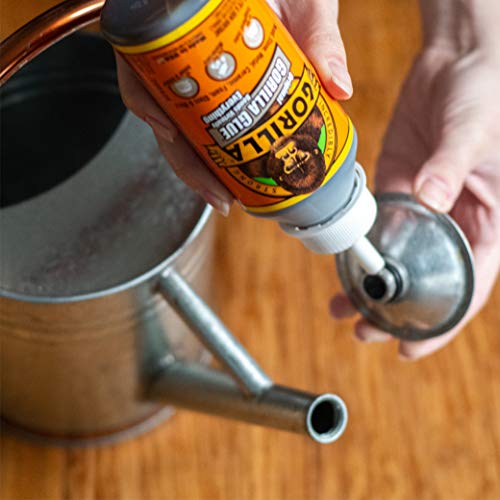
The setting time for this adhesive is 10-15 minutes, but since the parts need to be clamped for 1-2 hours, you cannot continue with your work for that period of time.
This is pretty standard for polyurethane adhesives and is a side effect of their massive strength and resistance. If you need something faster drying, a thin cement or a spray adhesive, like the M3 model we reviewed, might be a better choice.
Ease Of Use
The application of this glue isn’t hard but requires a few steps and some equipment.
Before applying the glue, we recommend testing it first to determine the amount you will need since the glue expands up to 3 times.
Then, lightly dampen one of the surfaces that you will bond and apply the glue. You will have 10 to 15 minutes before the adhesive sets to reposition the parts.
After you’ve assembled them, use a clamp to secure the parts for 1-2 hours before they become immovable.
As you can see, the steps aren’t that hard, and once you start doing them, you’ll easily get the hang of it.
Drying Color
One thing that people don’t like about this adhesive is the drying color. It dries a dark brown color that is noticeable if the bond is visible.
The good news is that you can easily sand and paint the dried glue and get the desired aesthetic result.
Verdict
We recommend this glue if you need to bond foam and other materials such as metal, plastic, or wood. While it does require a bit of work to get it right, the end result is a strong, resistant, and durable bond on every type of foam!
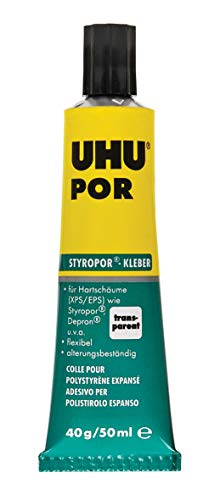
UHU POR Styrofoam Adhesive
Drying Color: Clear
Setting Time: 10-20 Minutes
Viscosity: Medium
If you want to bond styrofoam to styrofoam only, there probably isn’t an adhesive better than UHU POR. It is, in our opinion, the best glue for styrofoam when it comes to performance.
Bonding
This is a German glue that is one of the best-selling glue for styrofoam in Europe but was hard to find in the US until recently when a few sellers on Amazon started offering it.
The glue raised the demand for it because of its unbelievable strength when it comes to bonding styrofoam and other foam plastics to one another.
It doesn’t damage the foam at all and makes a bond stronger than the material itself. That’s why you will see the foam break before the bond made with UHU POR does.
Unfortunately, its performance on other materials isn’t as good as it is on foam, though not surprising as this is an adhesive designed for this application.
Toxicity
We really like that this glue is low VOC and not toxic, and unlike most other adhesives for foam, it doesn’t have a strong odor nor produces harmful and nauseating fumes.
This means that you can work with it indoors without the need for excessive ventilation. We still recommend wearing old clothes and protective equipment when working with any adhesive.
Environmental Resistance
The resistance of this glue to water and extreme temperatures is great. It can withstand moisture and temperature fluctuation with ease.
Because of this, it is well suited for foam projects that are located outdoors.
Drying Color

The drying color of this adhesive is crystal and fully transparent clear. You can safely use it on foam where the bonds will be visible and can affect the looks of your project.
Ease Of Use
This adhesive is easy to use but does require a couple of steps to ensure the strongest bond.
When you apply the glue to both foam surfaces you want to bond, wait for around 10 to 15 minutes before joining them.
After about 20 minutes, the glue will set, and the parts will become inseparable.
We like the medium viscosity of this glue that makes it so easy to apply on foam. It doesn’t run when you apply it but isn’t too thick either and won’t clog the bottle.
Affordability
In terms of performance on foam, and specifically styrofoam, this is, without a doubt, the best glue for foam. The only problem is the price and the fact that you will probably need more than one tube for most projects.
The costs can really build-up, and even the spray adhesive is a more affordable option. The most likely reason for this is the import cost from Europe, where this adhesive can be found at a much lower price.
That being said, if you’re bonding styrofoam to foam and you want the best adhesion and results, there is no better glue than this one!

Barge All Purpose Cement
Drying Color: Clear
Setting Time: 1 to 5 Minutes
Viscosity: High
Here is another cement on our list that glues foam excellently. It’s a great choice for its versatility, high strength, and quick drying time.
Bonding
This legendary cement has been around for ages and has gained popularity by providing great results. Its bonding strength and versatility are unmatched when it comes to contact cement adhesives.
There was no doubt in our minds that this cement will be able to bond all types of foam we tried it on, but we were concerned about how would the foam react to it.
It reacted perfectly and was glued inseparable and completely in tact.
This cement will work not only on every foam there is but with most plastics, wood, metal, and many more.
It is worth noting that this cement is an all-time favorite adhesive for EVA foam. Crafters love it and use it for this purpose all time! If you’re into making EVA foam cosplay costumes, you should definitely try this cement.
Drying Time
Another advantage of this cement is its extra fast drying time. It needs just 5 minutes to set, which is already faster than most other contact cement adhesives.
Many users have reported that they’ve experienced setting times as fast as 60 seconds when they used this glue on foam.
The quick-drying time will help you finish your projects faster and save more time as you won’t wait too much for the adhesive to set.
Ease Of Use
We love how easy to use this cement is compared to some other adhesives on our list. It comes with an applicator attached to the lid so that you can start applying the adhesive right away.
Because of its syrup-like viscosity, the application is mess-free with very little dripping. The glue goes where you want it to go and stays where you want it to stay.
Drying Color
As you have probably guessed, the drying color of this adhesive is crystal clear.
You can safely use the BARGE cement on visible foam joints without worrying about the discoloration and ruined results.
Toxicity
While the performance of this cement is impeccable, its toxicity is far from it.
The cement has a strong odor and fumes that can irritate if inhaled. We recommend using this adhesive outside or in a well-ventilated area.
As we previously mentioned, using protective equipment is advisable when working with any adhesive, and especially with a high VOC glue like this one.
Affordability
While it is one of the best performing contact cement adhesives of all time, this adhesive is avoided by many because of its hefty price tag. A similar performing adhesive like the DAP contact cement we reviewed earlier is almost as good and much more affordable.
Still, if you need a large quantity of adhesive for a bigger project that requires maximum strength, then this cement is definitely worth going for!
What To Look For When Choosing Glue For Foam
In this section of the article, we will explain the different types of foam and adhesives, as well as how they react to each other. After reading, you will hopefully have enough knowledge to pick the best glue for foam by yourself.
Type Of Foam
There are dozens of kinds of foam that are used for different applications, as well as hundreds of types of plastic that are used to create the foam. That’s why the first step in our search for glue for foam should be to identify the type of foam we have.
We can’t list all of the foam types, but we will present you with some of the most popular sorts of foam:
- Polystyrene Foam (Commonly referred to as styrofoam)
- PVC Foam
- Polyurethane Foam
- Ethylene-Vinyl Acetate (EVA) Foam
- Memory Foam
- Latex Foam
As we said, there are many others, but these are the most commonly glued. People ask about these all the time, and the interesting fact is that if the glue works for one of those foam types, it will probably work well with the others.
It can’t be as good at gluing all of them, but most will be able to hold the others.
With that being said, you should always ask around for an adhesive for your specific type of foam to achieve the best results. Doing a simple search on Amazon, such as glue for polyurethane foam, is a good place to start.
The Glue Has to be Foam Safe
After you’ve identified the type of foam you have, the first step you should take when looking for an adhesive is to check whether it’s foam safe.
That means that the glue won’t dissolve the sensitive material when it comes in contact with it.
If it is, it’s much more likely that it will work on your type of foam, and that’s when you should look for an indication from the manufacturer whether the glue is compatible with the type of foam you have.
If you can’t find anything, ask around or look for other people’s experiences with your particular foam and that adhesive.
Type Of Glue
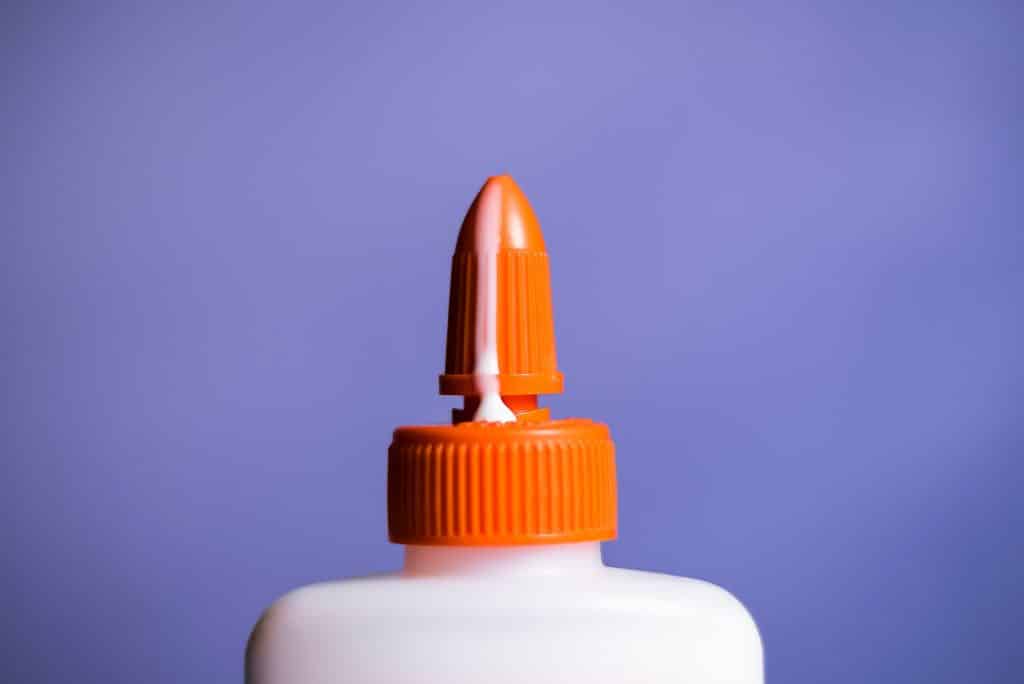
While there are a lot of adhesives that might work on foam, there are a few types of glue that work better than the others.
The adhesives that worked the best for us are:
- Contact Cement Adhesives
- Polyurethane Glue
- Spray Adhesives
- Flexible Super Glue
As we already said, the experience may wary between people, but these are the adhesives that we had the most success with when gluing foam.
The main similarity between all those adhesives is that they are foam-safe, strong, and flexible.
Flexibility is important since the foam tends to move, so we can’t use an adhesive that becomes brittle once it dries.
Any type of glue that has enough bonding power, is foam-safe, and has flexibility after it cures can be theoretically used to bond foam.
Versatility
The versatility of the glue is important if you want to bond foam to materials such as wood or metal.
You will have to do extra research to find out whether the glue you are looking at has the properties to bond both materials successfully.
Adhesives like contact cement and polyurethane are superb in terms of versatility and strength, as some of them are almost as strong as epoxies. They can bond almost anything you can think of and hold for years!
- Drying Color: Clear
- Setting Time: 15 seconds
- Viscosity: Low
Last update on 2025-01-24 / Affiliate links / Images from Amazon Product Advertising API
Conclusion
That about covers it for all you need to know about the best glue for foam.
The most important thing to remember is to pick a glue that is foam-safe and flexible.
All of the adhesives we reviewed are like that and are all excellent choices. You can’t go wrong with any of them!
read more

